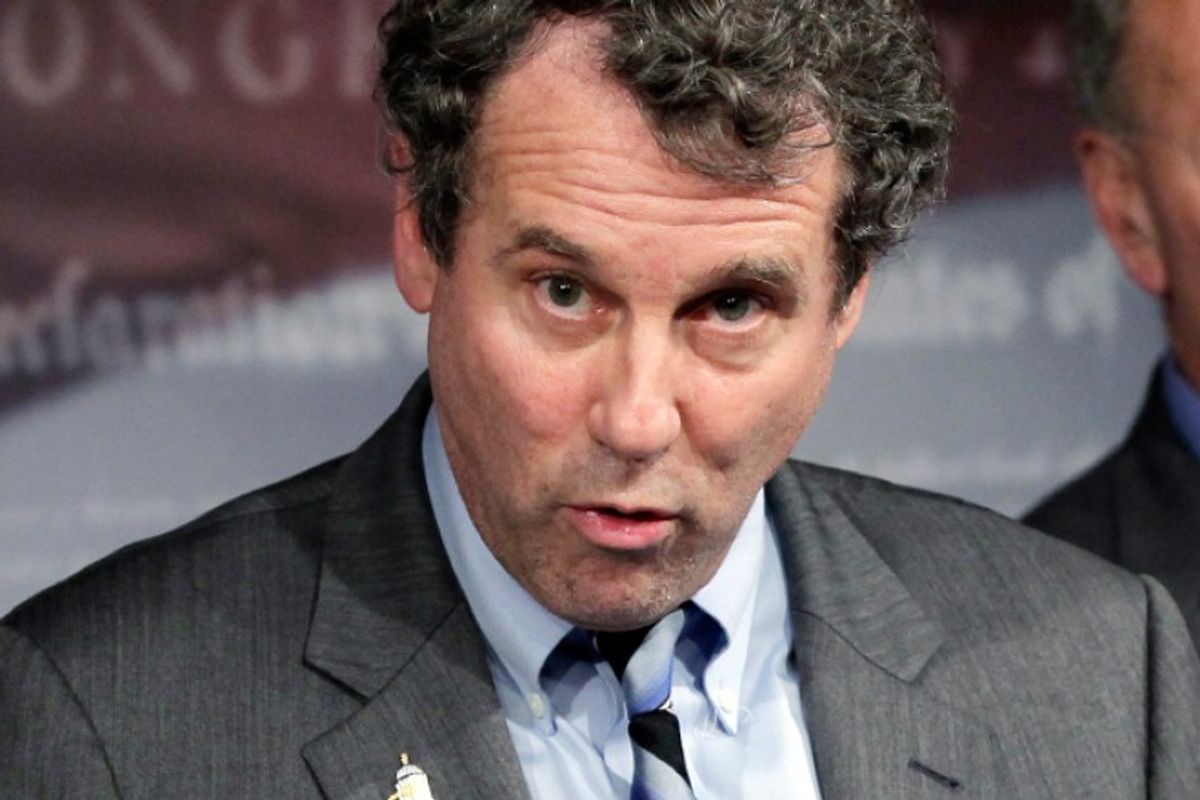Prognosticators predict a GOP Senate come January 2015, but that forecast is no foregone conclusion. If Greg Orman holds his lead in Kansas (and opts to caucus with the Democrats), Mark Udall rights his ship in bluish Colorado, and either Iowa’s Bruce Braley or Alaska’s Mark Begich overcome their opponents’ slight polling leads – and North Carolina Sen. Kay Hagan doesn’t suddenly slip – Harry Reid should return as Majority Leader in the 114th Congress. That’s a lot that must go right for the party, but it’s far from inconceivable.
Whichever party prevails in the fight for the Senate, it’s a certainty that the majority party will have only narrow control. At this point, the Democrats’ most realistic hope appears to be an evenly divided Senate, with Vice President Joe Biden breaking the tie. On the other hand, even if Republicans manage to win every competitive contest – something no serious analyst expects – they’ll hold just 55 seats, five short of the 60 required to break a filibuster. So control of the Senate is still up in the air, but legislative stalemate in the body is a sure bet.
Senate control matters, of course. While President Obama would enjoy veto power over legislation passed by a GOP Congress, unified Republican control would make his political life hell. The fishing expeditions – Benghazi! Lois Lerner! Fast and Furious! – that have defined the Republican House’s past four years would inevitably come to the Senate. Hostage negotiations over must-pass legislation would intensify, keeping the specter of another government shutdown ever-present.
If Democrats hang on, meanwhile, they won’t have the numbers (or a Democratic House) to pass the kinds of sweeping legislation that defined the Democratic Congress of President Obama’s first two years, but they will maintain control of the legislative agenda. And retaining power in the chamber would mean keeping control of the gavels on Senate committees, which not only move legislation but conduct vital investigations.
Enter Democratic Ohio Sen. Sherrod Brown. The Rust Belt populist isn’t exactly a household name, but if Democrats keep Senate power, he’s likely to become chairman of the crucial Senate Banking Committee. And that has Wall Street quivering in its boots.
Wall Street, of course, is doing all it can to stave off this possibility. Today’s Washington Post details the financial industry’s heavy investment in a GOP-led Senate this year. Wall Street wants to pare back regulations in the 2010 Dodd-Frank Law, and while the industry boasts no shortage of Democratic allies in Congress, it knows that a GOP Senate would be most receptive to its deregulatory agenda. That agenda would get a big assist from the industry-backed Alabama Sen. Richard Shelby, who would chair the Banking Committee if Republicans win Senate power.
A Brown-led Banking Committee, on the other hand, is a “frightening” prospect for finance types, as one bank executive told the Post.
What’s so scary about the gravelly-voiced solon? For starters, Brown, unlike Shelby, is a steadfast supporter of fellow progressive populist Elizabeth Warren’s Consumer Financial Protection Bureau, a major target of Wall Street ire. More controversially, Brown has proposed breaking up too-big-to-fail banks, calling for much tougher action toward reining in Wall Street than some in his party, like President Obama, are prepared to support. Brown hasn’t hesitated to take his Obama administration critics on, saying that they’re “wrong” and that while Dodd-Frank was an important step, it was inadequate in addressing the causes of the 2008 financial meltdown.
Under Brown’s proposal – on which he teamed up with conservative Louisiana Republican David Vitter – banks would be required to maintain a 15 percent equity-to-assets ratio, a way of reducing the risk that large financial institutions would require taxpayer bailouts in the event of a financial downturn. Securities analysts have taken note, warning clients that Wall Street will have a less-than-friendly face leading the Banking Committee if the Democrats keep the Senate.
Technically, Brown isn’t next in line to lead Democrats on the committee. But as Michael Langenmayr games out, the three Democrats ahead of Brown in seniority on the committee (excluding chairman Tim Johnson of South Dakota and Carl Levin of Michigan, who are retiring) are likely to chair other key committees and thus pass on the Banking Committee chairmanship.
However, Sen. Chuck Schumer of New York – a close Wall Street ally – ranks ahead of Brown on the committee. While Schumer may want to keep his Rules Committee chairmanship, it’s possible he could instead opt for the chairmanship of a committee whose work affects a key hometown industry. A Brown-Schumer faceoff wouldn’t have the magnetism of, say, a presidential primary. But it would, nonetheless, serve as a useful reminder that the battle for the soul of the Democratic Party will also play out in decidedly unsexy venues like the Senate Banking Committee.

Shares